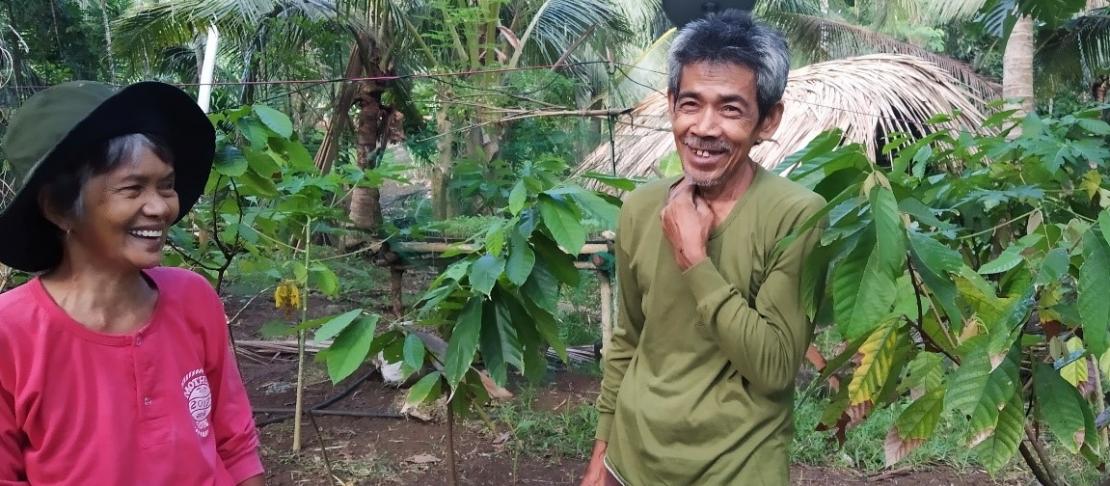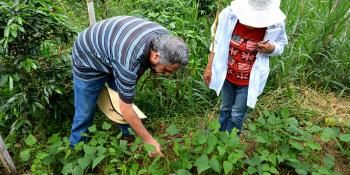Where to find healthy and nutritious food during COVID-19 outbreak?

The International Institute of Rural Reconstruction (IIRR) has been partnering with the CGIAR Research Program on Climate Change, Agriculture and Food Security (CCAFS) in implementing climate-smart agriculture (CSA) programs in the Philippines. Involving the smallholder farmers in Guinayangan Climate-Smart Village (CSV), IIRR has launched the Community Nutrition Project for the First 1000 Days. This project prioritizes pregnant women, lactating mothers, and their newborn children, whose health conditions can be compromised by the ongoing COVID-19 outbreak.
Under this project, a supplemental package called “Nutrelief” is distributed. Its main goal is to ensure that these women and children remain healthy amidst the outbreak. Nutrelief packages contain not only healthy and nutritious products provided by Guinayangan CSV farmers, but also information materials about COVID-19 prevention and practical steps on home garden establishment.
Although its scale is only local for now, the Nutrelief, as well as its parent project, presents an opportunity for CCAFS and IIRR to develop more “health-conscious” CSA programs. For CCAFS, specifically, this case can be relevant to its second phase, which aims to achieve food and nutrition security in Southeast Asia by transforming agriculture into a productive, climate-resilient, and low-emission sector.
Small farms with big contributions
CSA farmers Zenaida and Pepe Jordan own a four-hectare farm in Barangay San Pedro 1 in Guinayangan CSV. Their farm produces a variety of vegetables such as eggplant, bitter gourd, chili, ginger, and black pepper, which they sold in a much cheaper price to help those affected by the outbreak. A few more smallholder farmers provided stocks of camote, taro, squash, mongo, and leafy vegetables that were included the Nutrelief packages.
Local stakeholders have been lauding this initiative throughout the implementation. “This is a very good program as this is the time that we most need to eat nutritious foods,” [sic] Gimalyn Abellera, a Barangay Nutrition Scholar, said as they assist in delivering the packages to the priority families. Linda Gonzales, president of Tanglaw Silangan Parents Association, Inc.—a major IIRR partner—believes that “this program will reduce the incidence of malnutrition” in Guinayangan CSV.
The project model, which consolidates healthy and nutritious farm produce in CSVs and then brings them to consumers directly, can be adopted in future programs of CCAFS and IIRR. CSVs are productive and resilient even under extreme weather conditions. They can be a stable source of food for consumers and a secured livelihood for farmers—a win-win situation since the travel restrictions and lockdown measures limit the mobility of both people and food.
Many CSVs, like Guinayangan in the Philippines, can now supply fruits, vegetables, meat products, and seedlings to their immediate localities. The CSV, specifically, has included seedlings in the Nutrelief, enabling the beneficiaries to grow food in their backyards.
Read More:
- Blog: Equality in a post-pandemic era: gender, COVID-19, agriculture and climate change
- Blog: How we can use the COVID-19 disruption to improve food systems and address the climate emergency
- News Update: Technologies and approaches for a climate-resilient Philippine agriculture



